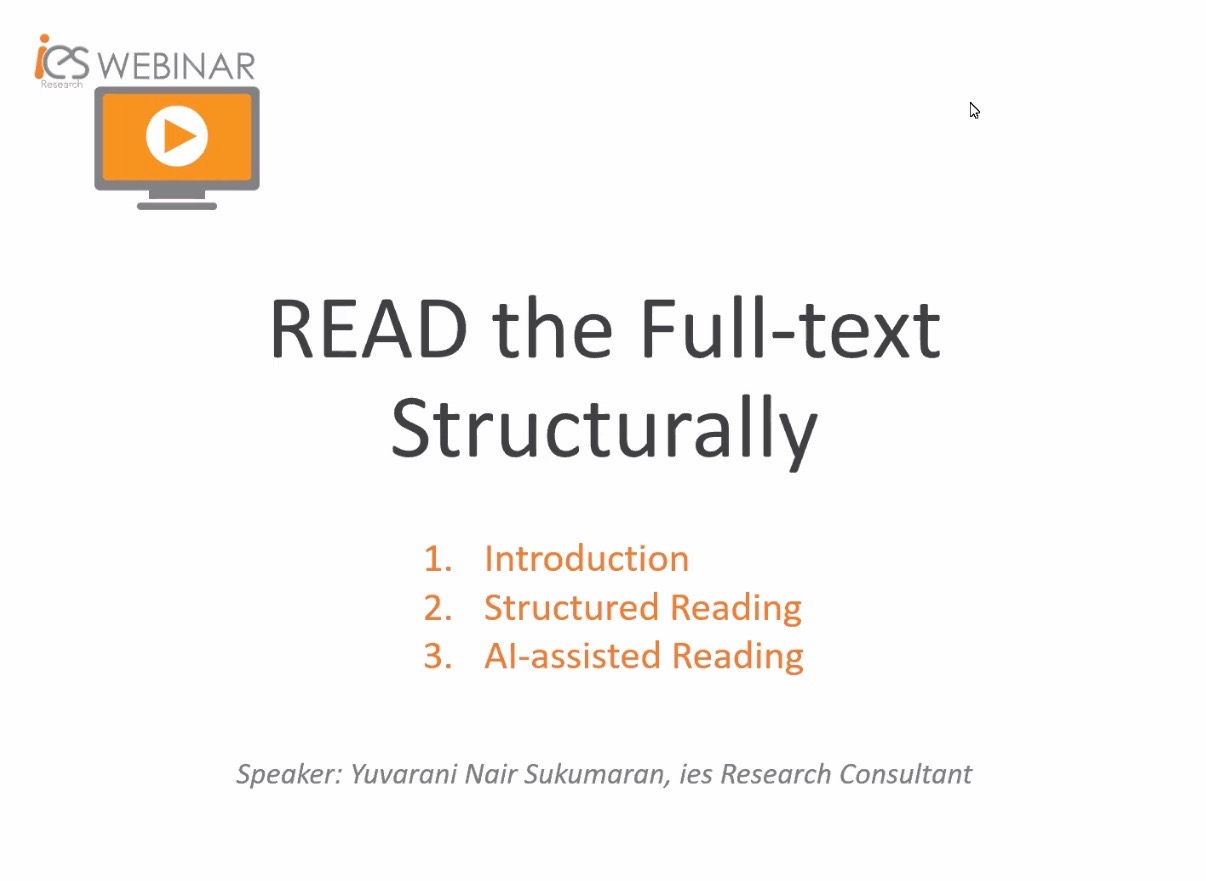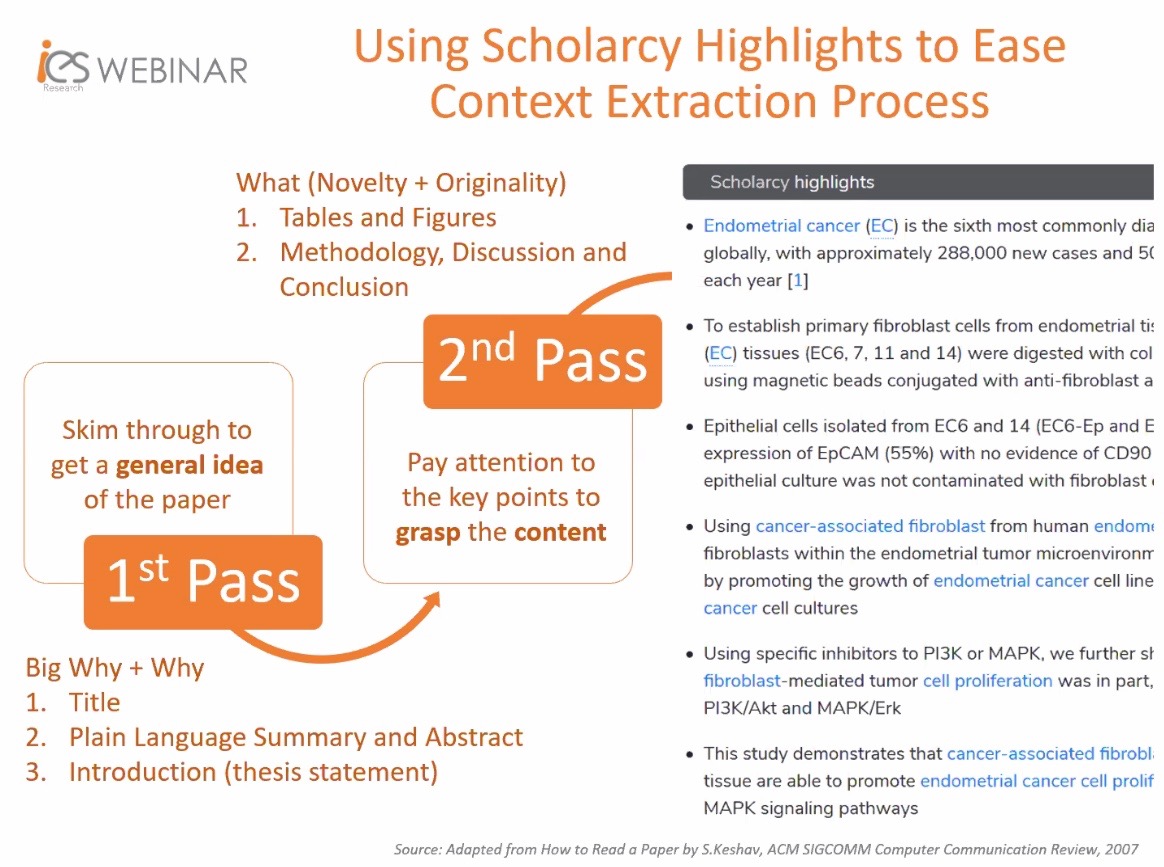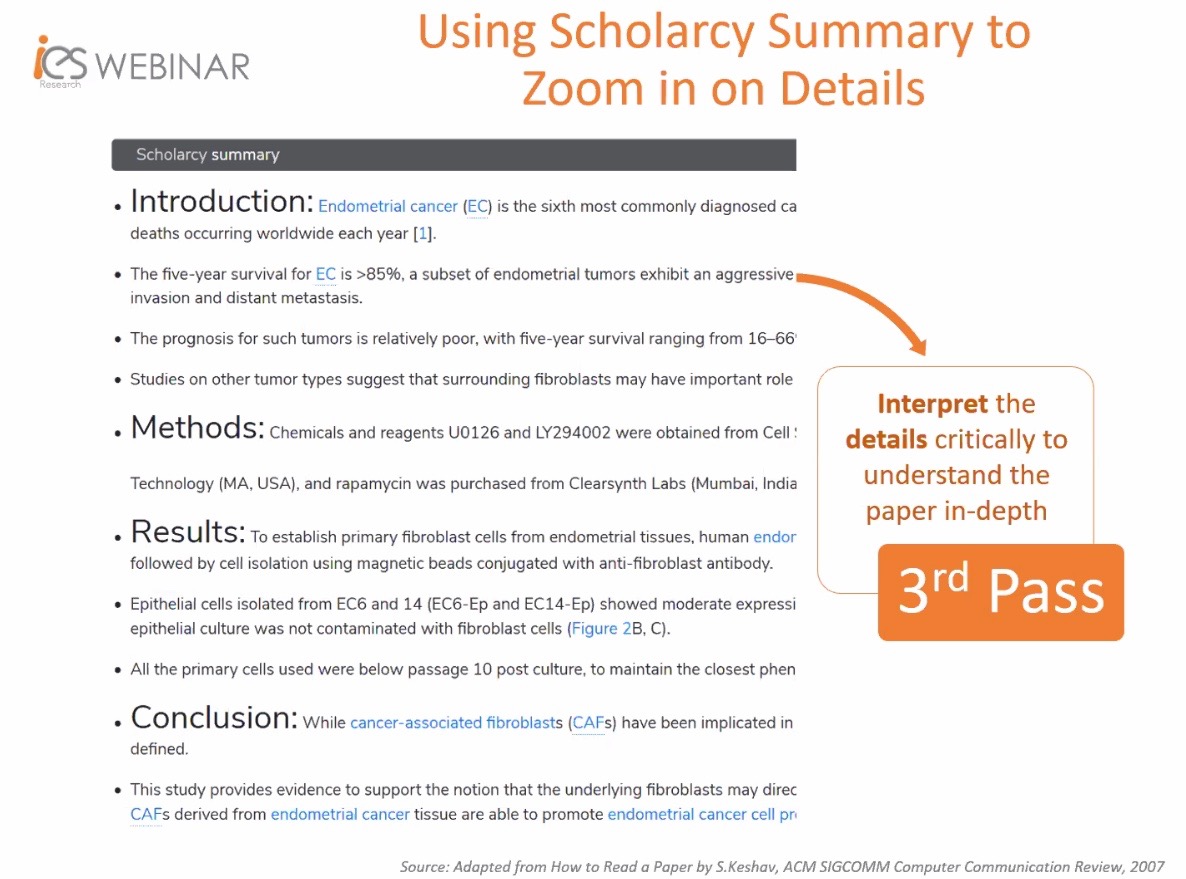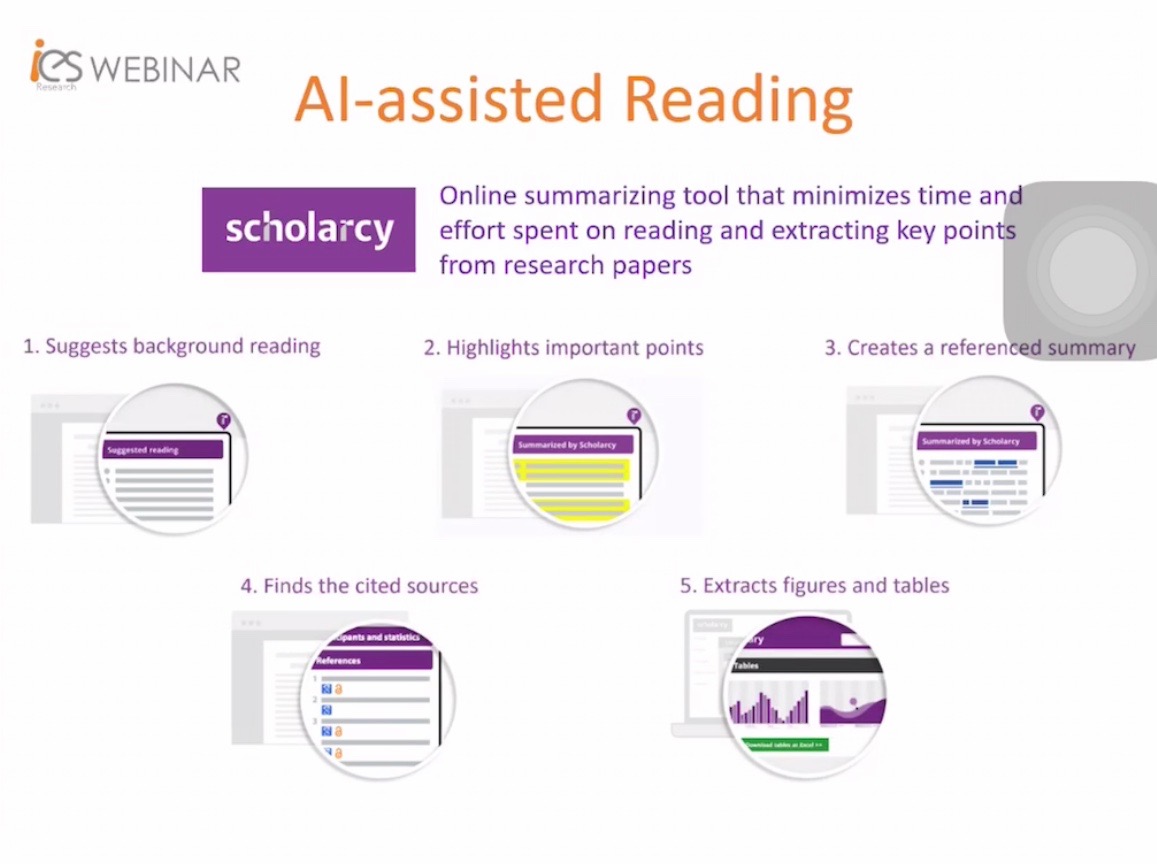The workshop lasted for 30 minutes with a 20-minute presentation and a 10-minute Q&A session. The speaker was Ms Yuvarani Nair, a consultant from IES with 5 years of experience as a researcher and an educator.
According to Ms Yuvarani, most people read for pleasure, knowledge and developing reading and writing fluency. There are three approaches to any kind of text: freestyle reading, structured reading, and AI-assisted reading. However, the first mentioned is not recommended by Ms Yuvarani because it usually requires the reader to read again and again to get the message.
Unlike common texts, scientific books and newspapers are neither interpretive nor understandable. Therefore, readers should approach them by finding the structure or seeking the help of artificial intelligence.
There are three steps to structured reading: 1) skimming for the general idea (through reading the title, the summary, abstract or introduction); 2) scanning for the key points to grasp the content (through reading tables, figures, discussions and conclusions; and 3) logically arranging the details to understand the text in-depth.
With the help of artificial intelligence, such as the Scholarcy software used by Ms Yuvarani herself, AI-assisted skimming and scanning for the key points can save the reader from multiple-return to the text. However, self-reading and in-depth understanding of text must be done by man, which should not be replaced by AI.
The webinar on “Read - the full-text structurally” is one of the 4 online webinars within the framework of the "Do your research work @home" program organized by IES Research Solutions (Singapore) and iGroup, with the help of researchers, faculty and students from higher education institutions to support global science activities, accelerate research and publication while “doing research work @home” due to the Covid-19.
About iGroup & IES Research Solutions iGroup (Asia Pacific) is a multinational corporation with over 30 years of prestige in the Asia-Pacific region in the field of services and information solutions for research and training activities. iGroup is currently a partner of more than 300 international publishers and prestigious information solutions firms such as Elsevier, Springer Nature, Wiley, Oxford, Cambridge, McGraw-Hill, Taylor & Francis, SAGE, Emerald, IES, etc… Many of their customers are government agencies, companies, universities and major research institutes worldwide, including Vietnam. |




